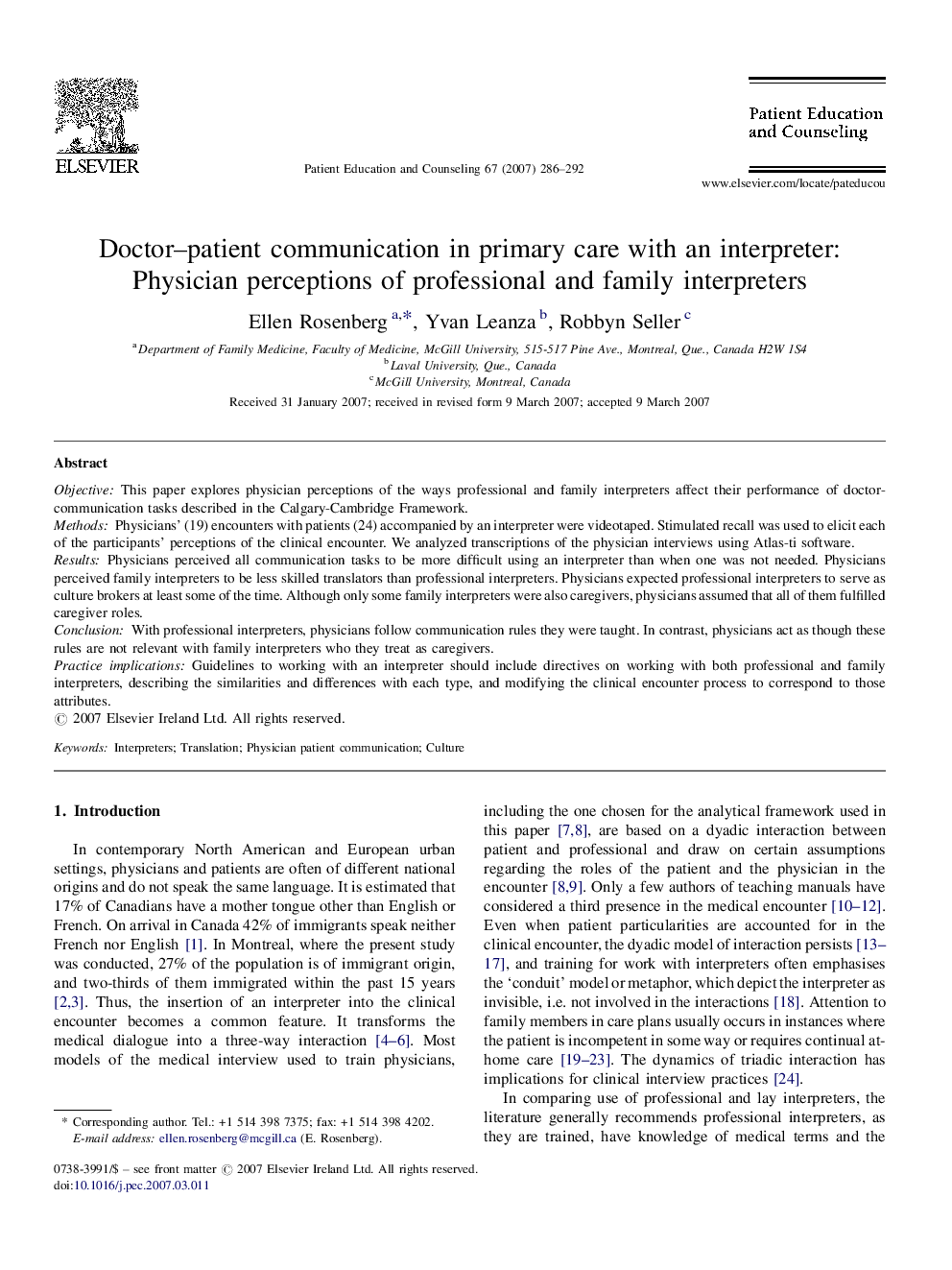| Article ID | Journal | Published Year | Pages | File Type |
|---|---|---|---|---|
| 3815514 | Patient Education and Counseling | 2007 | 7 Pages |
ObjectiveThis paper explores physician perceptions of the ways professional and family interpreters affect their performance of doctor-communication tasks described in the Calgary-Cambridge Framework.MethodsPhysicians’ (19) encounters with patients (24) accompanied by an interpreter were videotaped. Stimulated recall was used to elicit each of the participants’ perceptions of the clinical encounter. We analyzed transcriptions of the physician interviews using Atlas-ti software.ResultsPhysicians perceived all communication tasks to be more difficult using an interpreter than when one was not needed. Physicians perceived family interpreters to be less skilled translators than professional interpreters. Physicians expected professional interpreters to serve as culture brokers at least some of the time. Although only some family interpreters were also caregivers, physicians assumed that all of them fulfilled caregiver roles.ConclusionWith professional interpreters, physicians follow communication rules they were taught. In contrast, physicians act as though these rules are not relevant with family interpreters who they treat as caregivers.Practice implicationsGuidelines to working with an interpreter should include directives on working with both professional and family interpreters, describing the similarities and differences with each type, and modifying the clinical encounter process to correspond to those attributes.
